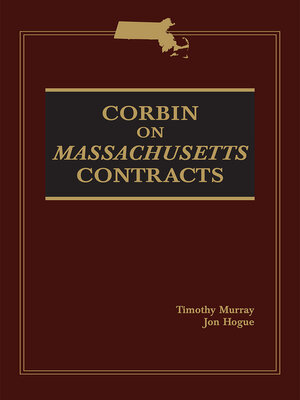
Sign up to save your library
With an OverDrive account, you can save your favorite libraries for at-a-glance information about availability. Find out more about OverDrive accounts.
Find this title in Libby, the library reading app by OverDrive.



Search for a digital library with this title
Title found at these libraries:
| Library Name | Distance |
|---|---|
| Loading... |
Corbin on Massachusetts Contracts is a unique and comprehensive explanation of the law of contracts in Massachusetts, supported by ample citations to, and discussions about, pertinent judicial authorities applying Massachusetts law, as well as pertinent statutory law. Importantly, this treatise underscores how Massachusetts law parts company with other trends. The book is written so that the user can easily reference the multi-volume Corbin on Contracts treatise that is the authoritative legal treatise relied on by courts in resolving contract disputes.
Massachusetts law largely follows the modern trends in many respects; in significant ways, however, Massachusetts has developed its own approach and results. Some major examples of these "exceptions" include:







